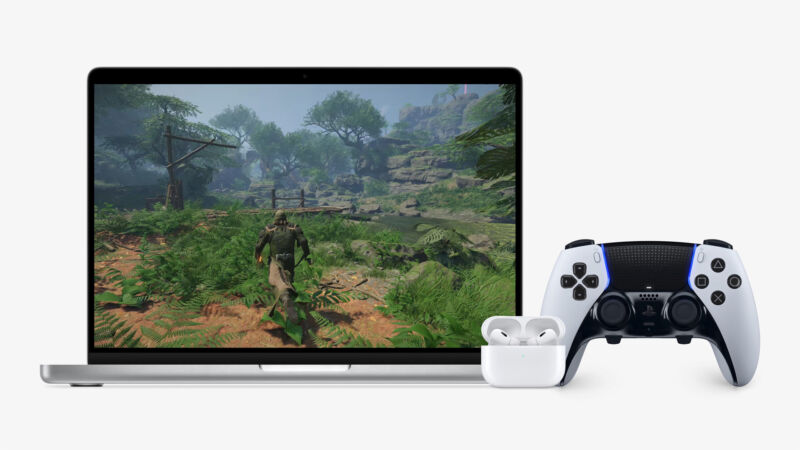
For the last two years, Apple has been working to make Mac gaming a thing. Expanded gamepad support, a new version of the Metal graphics API, and a low-latency Game Mode are among the gaming improvements added to recent versions of macOS.
But despite a handful of high-profile ports like No Man’s Sky or Resident Evil Village, Mac gaming is still stuck in the loop that it has always been stuck in: There aren’t a lot of high-profile games, so there aren’t many gamers who choose macOS, so there isn’t a lot of interest in developing high-profile games.
That cycle played out again in Valve’s recent Counter-Strike 2 update, which removed the Mac support already present in the outgoing Counter-Strike: Global Offensive. Today, a Valve support document for CS2 confirmed that Mac support had been removed and wasn’t likely to be re-added, along with support for ancient DirectX 9-class GPU hardware and legacy 32-bit operating systems.
“As technology advances, we have made the difficult decision to discontinue support for older hardware, including DirectX 9 and 32-bit operating systems,” the support page reads. “Similarly, we will no longer support macOS. Combined, these represented less than one percent of active CS:GO players. Moving forward, Counter-Strike 2 will exclusively support 64-bit Windows and Linux.”
Mac players eager for a Counter-Strike fix can continue to play CS:Go for a few weeks. A legacy version (which lacks official matchmaking but is otherwise unchanged from the final pre-CS2 version) will remain available until January 1, 2024. After that, the game will still be available, but “certain functionality… may degrade and/or fail,” according to Valve.
Counter-Strike 2 is intended to be a complete replacement for CS:GO, which was originally released in 2012. CS2 preserves many of the maps and the basic gameplay of CS:GO, but with the benefit of the updated Source 2 graphics engine and other under-the-hood graphical updates. Those updates just won’t be available for people playing on Macs.
The base version of CS2 is free to play, but Valve offers a “Prime Status” upsell for $14.99 that ensures that you’ll only be matched against other people with Prime Status, as well as “Prime-exclusive souvenir items, item drops, and weapon cases.” Valve is offering DirectX 9 and 32-bit Windows users a Prime Status refund if they bought the upgrade “between the announcement of the Counter-Strike 2 Limited Test (March 22, 2023) and the launch of Counter-Strike 2 (September 27, 2023).”
Those refund terms are a bit more generous for Mac users, who can get a refund regardless of when they purchased Prime Status. But they need to have logged most of their playtime on macOS, and they need to have played the game between March 22 and September 27, 2023. Valve’s terms are obviously intended to weed out people who only play on a Mac occasionally or Mac owners who stopped playing the game a long time ago.
Apple is still trying to encourage game developers to give the Mac a chance. This year’s macOS Sonoma update premiered alongside something called the Game Porting Toolkit, which promises to speed up the prototyping phase by making it relatively easy for Windows game developers to get unmodified versions of their games up and running on Apple Silicon Macs. But this is still mostly intended to be a developer tool, not something designed to help end users run Windows games on their Macs.
That kind of user-friendly translation layer has finally helped increase the popularity of gaming on Linux by a statistically significant amount. The Steam Deck and its Proton layer (also available on other Linux systems) both meet Windows game developers where they already are instead of trying to convince them to create and maintain native Linux ports. Getting a Windows game running on a Mac requires more performance overhead—in addition to translating Windows API calls into Mac ones, x86 code written for Intel and AMD CPUs also needs to be translated into Arm code that Apple Silicon Macs can run. But until some kind of user-friendly game translation feature becomes available, Mac games still seem destined to be few and far between.
https://arstechnica.com/?p=1974827

